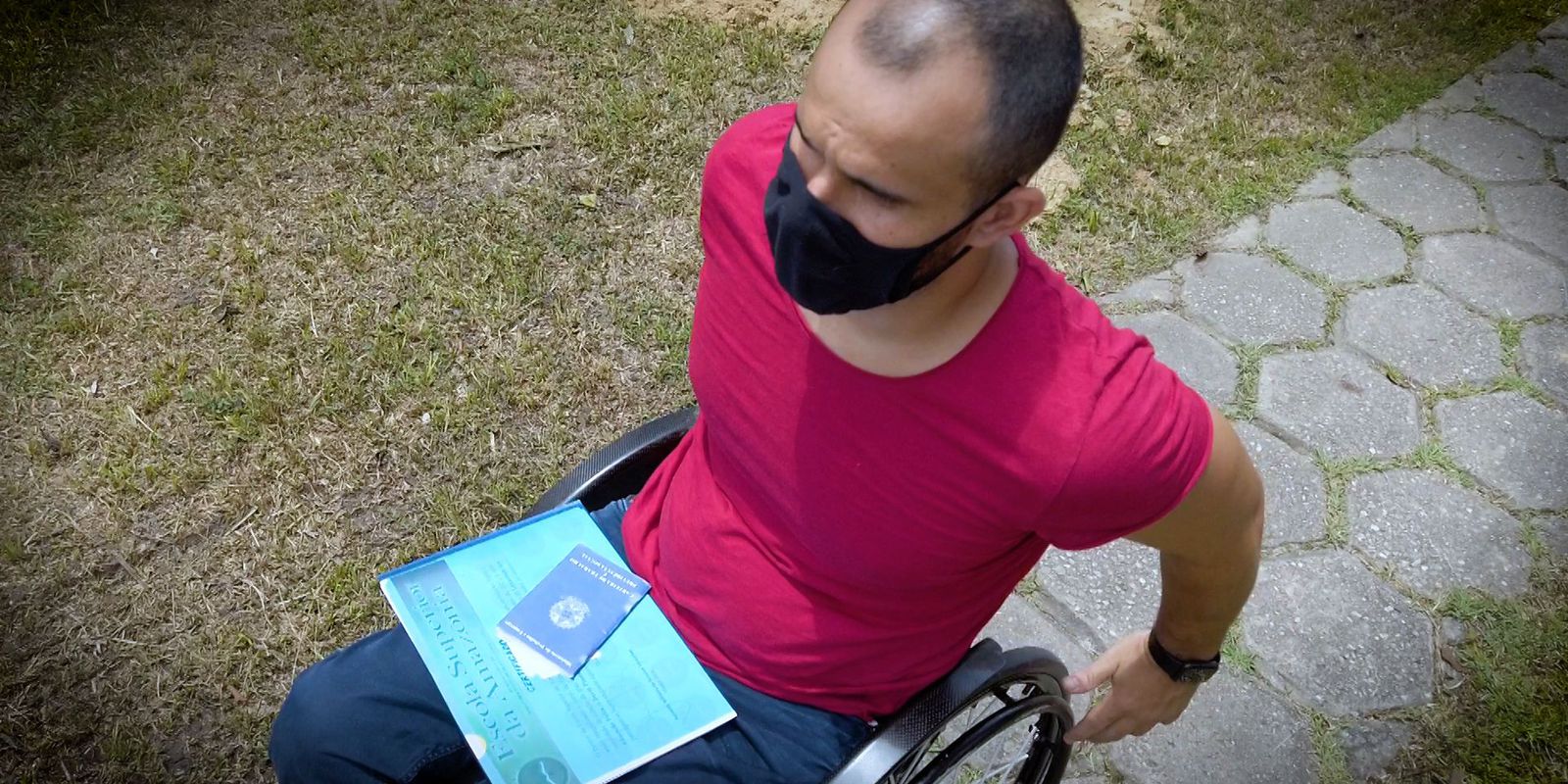Created three decades ago to ensure inclusion in the Brazilian labor market, the Quota Law has provided opportunities for people with disabilities, but it still faces challenges to be widely enforced.
In the country, companies with 100 employees or more are required to allocate vacancies to people with disabilities. Currently, about 372,000 professionals with disabilities are employed in the Public Administration, in public companies and mixed capital companies and in private companies, which represents an occupation of only 53% of reserved vacancies.
In smaller municipalities, the chances of formal positions are lower, because small businesses in the local economy are not subject to the obligation to reserve vacancies.
THE Reporting Pathsgives TV Brazilwas to get to know the reality of people with disabilities who live in the municipalities of Soure and Salvaterra, which are located on Ilha de Marajó, in Pará.
For 23 years at the head of the Soure Association of Parents, Friends and Disabled people, Derci Pereira points out that most of the activities carried out by these people are still informal. “We have approximately 200 associates with all types of disabilities, physical, hearing, visual, down syndrome.” She says that many of them make homemade sweets and embroideries which, in addition to preserving the Marajoara culture, bring income to the families.
The national secretary for the Rights of Persons with Disabilities, Claudio Panoeiro, recognizes that “the great weakness occurs fundamentally in medium and small companies, mainly in smaller municipalities”. One of the proposals in progress, according to the secretary, is a protocol of intentions with the Brazilian Association of Supermarkets, responsible for 94 thousand establishments spread throughout Brazil. An opportunity to generate jobs for people with disabilities in all parts of the national territory
Even in Belém, capital of Pará, where there is a little more opportunity, physical education teacher Davi Pontes reports that he has already been disqualified from job selection processes for being a wheelchair user. But he is not discouraged: “we have to keep knocking on the door, because at some point it will open”.
positive examples
On the other hand, São Paulo concentrates a greater number of positive examples. Natura&Co has 7% of employees with some type of disability, a rate higher than the 5% imposed by law in the case of companies of this size. Aline Borges, a young woman with cerebral palsy, has been working at Natura for years. “I want to get to a leadership position someday and maybe become a vice president! And I also want inclusion in Brazil to actually happen. But that it be something natural”, projects Aline.
The diversity, equity and inclusion manager at Natura&Co, Milena Buosi, cites the advantages of hiring people with disabilities. “Having different people here, with different life histories, among our employees, we tend to be closer to our beauty consultants and our consumers who reflect society”.
Also in São Paulo, Carolina Ignarra brings another case of progress. She created Talento Include, which has already helped employ more than 8,000 professionals with disabilities. In the CEO’s analysis, “because of the law, companies want to hire people with disabilities, but they don’t know how to do it. And I realized that my story could help them to look at the person from the profile and the disability to be accommodated together. “.
To overcome the challenges that still hinder inclusion, Brazil has invested in exchanging experiences with the EUROsociAL+ program. For the ambassador of the European Union in Brazil, Ignacio Ibáñez, the quota law needs to be added to the affirmative measures, which “seek precisely to put the advantages that companies and the public sector will have having people with disabilities working with them”.
One of the experiences shown by EUROsociAL+ to the Brazilian government is that of Grupo Once, in Spain, which emerged from an organization for the blind created 80 years ago. Today, the group has a foundation and a set of social enterprises. It is the fourth largest Spanish employer, with 73,000 workers, 60% of whom have a disability.
“Based on the experiences of others, and this was a fundamental work of EUROsociAL+, we can build a model that overcomes the weaknesses of previous models, that corrects the imperfections identified”, highlighted the national secretary for the Rights of Persons with Disabilities, Claudio Panoeiro. .
The program Reporting Paths airs today (14), at 10 pm, on TV Brazil.










